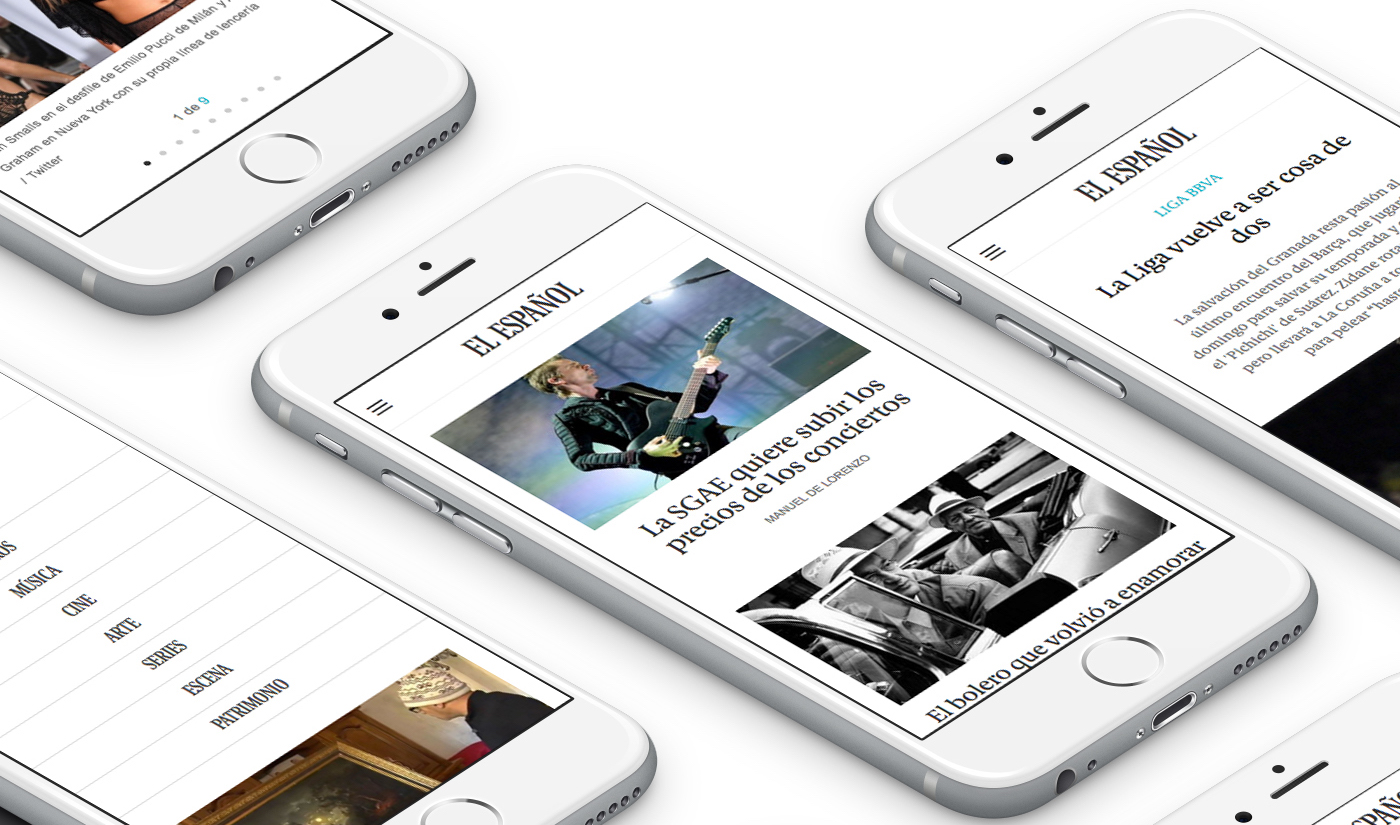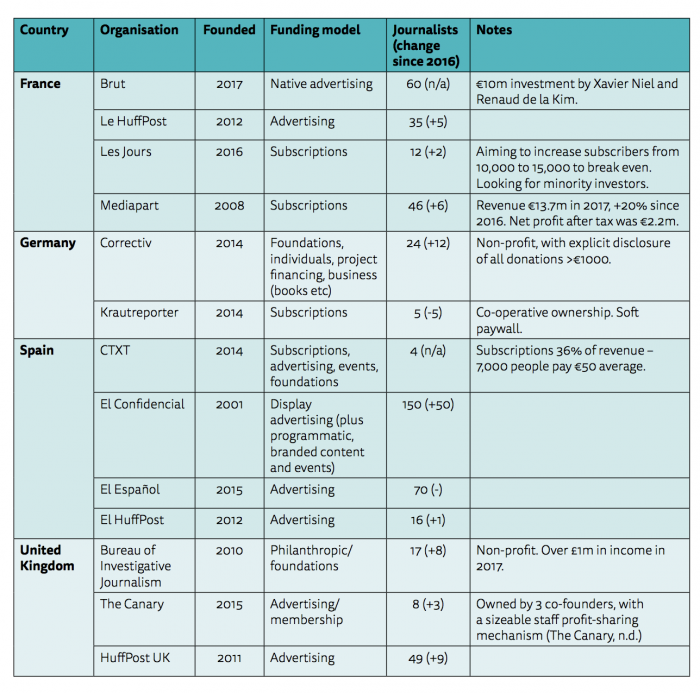
“It was around this time last year that things were starting to look a little dicey for the media industry’s once breathlessly-hyped digital unicorns,” Joe Pompeo wrote for Vanity Fair this week. BuzzFeed, Vice, Mashable, and Vox, “which once heralded the dawn of a new media age — replete with massive valuations, large fund-raising hauls, and millennial sex appeal — now appeared to exhibit some traits of the brands that they once attempted to disrupt.”
A new report from the Reuters Institute for the Study of Journalism, three years in the making, echoes some of Pompeo’s take on digital natives’ upcoming “frigid winter,” this time for European publishers. Researchers Tom Nicholls, Nabeelah Shabbir, Lucas Graves, and Rasmus Kleis Nielsen interviewed leaders from 13 digital native media outlets in France, Germany, Spain, and the United Kingdom in a repeat of their 2016 study, which suggested the European digital-born organizations were more pragmatic than innovative.Their top findings from this round:
The media executives interviewed were frank in assessing their potential:
“It’s like we’re farmers. We have to produce stuff every day, go to the marketplace every day, and attract people with good stories. So that’s not a scalable start-up business, but it’s a very steady, very sustainable, and very honest business based on relationships. And that’s a lot of fun,” said Krautreporter’s publisher, Sebastian Esser.
“Every year we ask ourselves: ‘Will we grow again by 10,000 subscribers next year, and then the following year again?’ Trees do not rise to heaven,” said Mediapart’s cofounders, Edwy Plenel and Marie-Hélène Smiejan-Wanneroy.
“If you decide to make people pay for your content, you’re losing that kind of ideal world in which El Confidencial contributes to a better society. You’re losing by making people pay,” said Alberto Atero, El Confidencial’s executive director. (The whole paying-for-news thing is still catching on in Spain.)
The transition of asking readers for money was a particular pain point in this report. In 2016 very few digital native news outlets were using reader revenue via subscription or membership, but six of the 13 organizations studied here are relying quite heavily on it.
The publishers have also taken broad hits from Facebook’s algorithm change. The Spanish sites, in particular, have been hit hard, with El Español and El HuffPost losing 50 percent of their traffic. Brut’s editor-in-chief, Laurent Lucas, frames it well: “Platforms have evolved — and we evolve with platforms.”Here are the organizations analyzed in this report and their funding models:

Read the full report here.